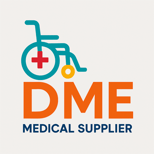InaUgration month sale ! ! Every product is On SALE,
ADD 20FIRSTMONTH Discount CODE FOR CUSHION AND PILLOWS. aUTOMATIC DISCOUNT APPLIED ON ALL OTHER CATEGORIES

HIPPA Policy
Explore our frequently asked questions about medical supplies and find the answers you need.
Effective Date: 05/21/2025
Last Updated: 05/21/2025
DME Medical Supplier (referred to as "Company," "we," "our," or "us") is committed to protecting the privacy and security of your Protected Health Information (PHI) in accordance with the Health Insurance Portability and Accountability Act of 1996 ("HIPAA") and applicable state privacy laws. This Privacy Policy explains how we collect, use, disclose, and safeguard PHI obtained through our website: dmemedicalsupplier.com
1. What Is Protected Health Information (PHI)?
PHI includes any individually identifiable health information that relates to your medical condition, treatment, or payment for healthcare services, and that can be used to identify you. This includes information collected via contact forms, intake submissions, online chat, appointment scheduling, or secure file uploads on our website.
2. How We Collect PHI
We may collect PHI through the following website features:
Online intake or referral forms
Prescription or documentation uploads
Secure contact or consultation requests
Live chat with our care team
Insurance verification forms
Customer service inquiries that involve medical details
We do not sell, rent, or license your PHI to third parties.
3. How We Use Your PHI
We may use the PHI you provide to:
Coordinate your DME or Complex Rehab evaluation and delivery
Verify insurance eligibility and coverage
Submit claims to Medicare, Medicaid, or private insurers
Respond to your inquiries or provide customer service
Comply with federal and state regulatory or legal obligations
Improve our services, website experience, and compliance
4. Disclosure of PHI
We may share your PHI with:
Licensed clinicians (e.g., ATPs, therapists, physicians) involved in your care
Insurance providers or authorized billing services
Authorized third-party vendors or service providers under HIPAA-compliant agreements (e.g., hosting, EHR, claims systems)
Government agencies or regulatory bodies, as required by law
You, or your authorized personal representative, upon request
All disclosures are made in compliance with HIPAA's "minimum necessary" standard.
5. Security of Your PHI
We implement physical, administrative, and technical safeguards to protect your PHI, including:
Secure HTTPS encryption across our website
HIPAA-compliant web hosting and data storage
Password-protected access to internal systems
Regular security audits and staff training
Despite our efforts, no method of transmission over the Internet is 100% secure, and we cannot guarantee absolute security.
6. Your Rights Under HIPAA
You have the right to:
Request a copy of your PHI
Request corrections to your PHI
Request a restriction on certain uses and disclosures
Request an accounting of disclosures
File a complaint if you believe your rights have been violated
To exercise these rights, contact us at:
Email: info@dmemedicalsupplier.com
Mail: 137 S State Rd 7 #303, Royal Palm Beach FL, 33414
7. Cookies & Tracking
Our website may use cookies or analytics tools to improve user experience. These do not track or store PHI unless explicitly entered in a form or upload.
8. Third-Party Links
Our website may contain links to third-party websites. We are not responsible for the privacy practices of those sites. We encourage users to read the privacy policies of any third-party site they visit.
9. Changes to This Policy
We may update this HIPAA Website Privacy Policy periodically. Updates will be posted on this page with the "Last Updated" date at the top. Continued use of the website constitutes acceptance of the updated policy.
10. Contact Us
If you have questions about this HIPAA Website Privacy Policy or our data practices, please contact our Privacy Officer at: info@dmemedicalsupplier.com
CONTACT US
Support
info@dmemedicalsupplier.com
5614043316
© 2025. All rights reserved.
137 S State Rd 7 #303,
Royal Palm Beach FL, 33414
